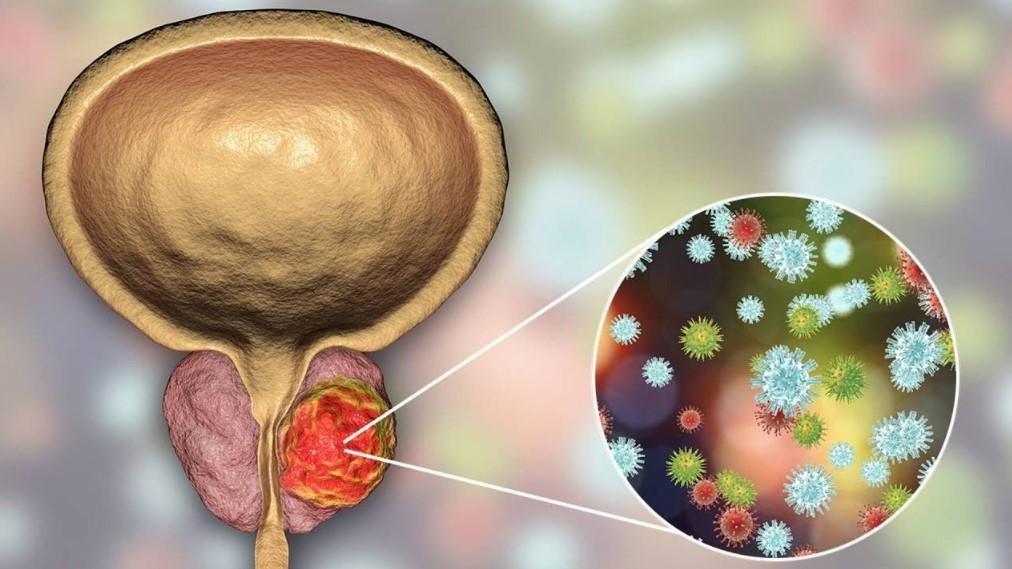Prostate cancer (PC), is a malignant neoplasm that develops from epithelium of prostate gland. Why should this disease be the focus of attention not only of urologists, but also of all medical specialists and every man? The fact is that prostate cancer takes the first positions in the structure of cancer diseases in male population of all European countries. PC currently ranks the second position among the causes of death due to malignant neoplasms among male population.
The risk of PC increases with age. At the same time, early recognition of the disease makes it possible to carry out effective treatment, which, in turn, leads to an increase in the duration and improvement of patient's quality of life. The problem of PC early diagnosis is extremely urgent, because the disease is very common and it is difficult to recognize it at the beginning, since there are no clinical symptoms.
Risk factors for prostate cancer development
The presence of risk factors absolutely does not mean that a man will have this disease, but he should monitor his health more closely, since the risk of PC is increased. Unfortunately, the main known risk factors for prostate cancer are unmodifiable, that is, we cannot influence them by modifying our lifestyle and changing our habits. The rest are modified and we can actively fight them in order to reduce PC basic risk in each individual man.
Main risk factors:
- Age – the risk of PC increases in proportion to man’s age, the increase in disease prevalence is recorded after 40 years.
- Genetic predisposition – men in whose family relatives of the first line suffered from prostate cancer have a 2-3 times greater risk of this disease. To date, no mutations have been identified in genes responsible for PC development, but we expect it in future.
- Race – black skin men are more likely to prostate cancer development than other racial and ethnic groups.
- Sedentary lifestyle, excess body weight.
- Negative impact of occupational hazards, for example, the risk of pathology is higher among welders and among workers who come into contact with caoutchouc, cadmium, and rubber.
- The presence of urogenital tract chronic infections, for example, prostatitis.
A strategy for screening men for cervical cancer and early detection of the disease
Importantly! In Ukraine, up to 50% of prostate cancer patients already have regional or distant metastatic lesions at the time of diagnosis.
Therefore, it is extremely important for PC successful treatment to detect it in initial stages, because the tumor metastasizes quite early.
The "gold standard" of prostate cancer screening includes:
- transrectal ultrasound examination of the prostate (TRUS),
- control of prostate-specific antigen (PSA) level, a prostate tumor marker.
TRUS makes it possible to clearly assess the condition of gland, the presence of its enlargement, changes in contours and structure, symmetry, integrity of capsule. In addition, doctor has the opportunity to visualize nearby organs, for example, the bladder, which also provides valuable information in screening search.
Importantly! In order to detect PC at an early stage, every man after the age of 40 should regularly take a blood test for the content of PSA.
PSA (prostate specific antigen) is a substance produced in epithelial cells of prostate gland. Normally, a small amount of PSA enters blood, where it can be determined by special laboratory methods both in free and protein-bound state (together, these 2 fractions of PSA make up the total level of PSA in blood). PSA function in a man's body is to break down proteins, which contributes to dilution of seminal fluid.
PSA is one of the most sensitive tumor markers for prostate cance development, and it is also used to monitor treatment and early diagnosis of disease recurrence.
In case when patient receives abnormal levels of PSA in blood, urologist must refer him for further examination, which may include prostate biopsy and pathohistological examination of tissue samples, as well as various medical imaging techniques (MRI, CT, PET-CT, etc.), depending on clinical situation.
Prostate cancer modern treatment
Early detection and application of the entire arsenal of modern methods of prostate cancer treatment makes it possible to completely cure the patient of this disease and at the same time preserve his male health.
For a long time, the only radical method of treating prostate cancer remained surgery – lradical prostatectomy. As a result, severe side effects such as impotence, infertility, and urinary incontinence often occurred. Today, such a large-scale intervention is used only in extreme cases, when the disease has progressed to advanced stages of its development. Also, urologists offer modern minimally invasive procedures that help improve the quality of patients’s life with widespread forms of prostate cancer, for example, TUR of prostate (transurethral resection). The procedure helps to improve the outflow of urine and, accordingly, relieve patient of disease symptoms.
A modern alternative to radical prostatectomy, if the disease has not progressed far, is radiosurgical treatment using CyberKnife device. At the same time, treatment is minimally invasive and organ-preserving (men do not have such problems as after radical prostatectomy).
CyberKnife dedvice is one type of radiation therapy, but due to the high efficiency of treatment, this type of therapy is called radiosurgery. Treatment of a prostate gland tumor with CyberKnife consists in applying high doses of ionizing radiation exactly to neoplasm, which leads to its complete destruction. Healthy tissues of prostate gland are not significantly affected by radiation, so they retain their function.
Often, the program of PC treatment is supplemented with other methods:
- remote radiation therapy on modern linear accelerators,
- hormone therapy,
- chemotherapy + immunotherapy according to modern global treatment protocols.
If you want to undergo a screening examination, or you need the specialized help of a urologist to diagnose prostate diseases, perform a certain diagnostic procedure (for example, a prostate biopsy), you want to receive modern and effective treatment – contact us. Maimonides Medical Center works according to the model of Israeli medicine, as one of the most effective in the world, so our patients can be sure of all medical services quality.



